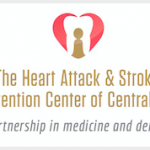
Dr. McGlennen: Like periodontitis, rheumatoid arthritis (RA) is a chronic inflammatory condition. But unlike periodontitis, where the genesis of the inflammation is the complex infections in the gingival sulcus, the cause of RA is unknown. Recent studies, however, provide insights that, in part, oral bacteria play a role in evoking an abnormal immune response that then leads to joint disease. In a recent meta-analysis of 21 separate studies, there was a significantly increased risk of per...
Read More



